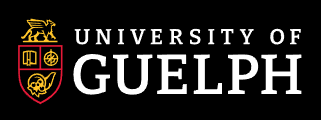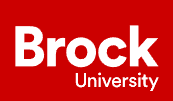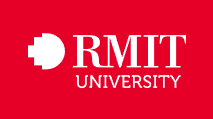Determining the knowledge on helicobacter pylori,government programs, environmental factors, and media influence on the health behaviors among low-income residents in fujian province: a basis for program development
DOI:
https://doi.org/10.63313/IJED.9020Keywords:
Helicobacter pylori, low-income residents, health behaviors, government programmes, media influence, environmental factors, health preventionAbstract
This study determined the level of knowledge on Helicobacter pylori (H. pylori) infection, perception of government programmes and support, media influence, environmental factors, and health among low-income residents in Fujian Province, China. The data were collected through structured ques-tionnaires administered to 516 low-income adult residents aged 18–65 years in Xiamen City, Fujian, who met the municipal low-income criteria. A stratified random sampling method was used to obtain samples, with a total of n=516 valid questionnaires collected. Descriptive statistics, correlation analysis, mul-tiple regression, and moderation analysis were used to examine the relation-ships and predictive power among the variables. The findings showed that There is a significant positive correlation between H. pylori knowledge, gov-ernment programs and support, media influence, environmental factors, and health behaviors (all tests p<.001); the final model of multiple regression has good explanatory power (R²=0.618, overall F test p<.001), with environmental factors having the most significant impact on overall health behaviors (main effect t=12.66, p<.001). The conclusions remain robust after controlling for age, gender, marital status, and educational level; significant differences were also found in inter-group comparisons based on demographic characteristics (p<.05). The study provided evidence-based recommendations for designing targeted public health interventions, government support programs, enhancing media communication strategies, and improving environmental health policies to reduce H. pylori infection rates and improve the overall health of low-income communities in China.
References
[1] Blake, K. D., Ottenbacher, A. J., Rutten, L. J. F., Grady, M. A., Kobrin, S. C., Jacobson, R. M., & Hesse, B. W. (2023). Predictors of human papillomavirus Knowledge and knowledge in 2013: gaps and opportunities for targeted communication strategies. American journal of preventive medicine, 48(4), 402-410.
[2] Fan, H.L., & Chen, Y.M.. (2020). Progress in the study of Helicobacter pylori infection and the pathogenesis of related diseases. Chinese Journal of Physicians, 012(012), 1726-1728.
[3] Papastergiou, J., Donnelly, M., Yuen, T., Li, W., & van den Bemt, B. (2020). Community pharmacy–based H. pylori screening for patients with uninvestigated dyspepsia. Canadian Pharmacists Journal/Revue des Pharmaciens du Canada, 153(2), 101-107.
[4] Kwon, S. C., Kranick, J. A., Bougrab, N., Pan, J., Williams, R., Perez-Perez, G. I., & Trinh-Shevrin, C. (2020). Development and assessment of a Helicobacter pylori medica-tion adherence and Stomach Cancer prevention Curriculum for a Chinese American immi-grant population. Journal of Cancer Education, 34, 519-525.
[5] Su, Q., & Xu, S. P.. (2021). Progress in the study of Helicobacter pylori. Journal of Clinical Gastroenterology, 000(003), 132-133.
[6] Liou, J. M., Malfertheiner, P., Lee, Y. C., Sheu, B. S., Sugano, K., Cheng, H. C., et al., & El-Omar, E. M. (2020). Screening and eradication of Helicobacter pylori for gastric cancer preven-tion: the Taipei global consensus. Gut, 69(12), 2093-2112.
[7] Lee, H. Y., Kang, H. R., Lee, J. K., Heo, E. Y., Choi, S. H., & Kim, D. K. (2020). The effect of Heli-cobacter pylori infection on the decline of lung function in a health screening popula-tion. Annals of Palliative Medicine, 9(5), 3115122-3113122.
[8] Wang, H., Huang, J. F., Zhao, H. Y., & Liang, X. Y.. (2020). Survey on the status of Helicobac-ter pylori infection in health check-up population. China Health Statistics, 29(5), 2.
[9] Zhao, Q., et al. (2020). Living environment and its role in the effectiveness of health educa-tion programs for H. pylori prevention in low-income populations. Environmental Health Insights, 14, 1-9. https://doi.org/10.1177/1178630220907320
Downloads
Published
Issue
Section
License
Copyright (c) 2025 by author(s) and Erytis Publishing Limited.

This work is licensed under a Creative Commons Attribution-ShareAlike 4.0 International License.






















